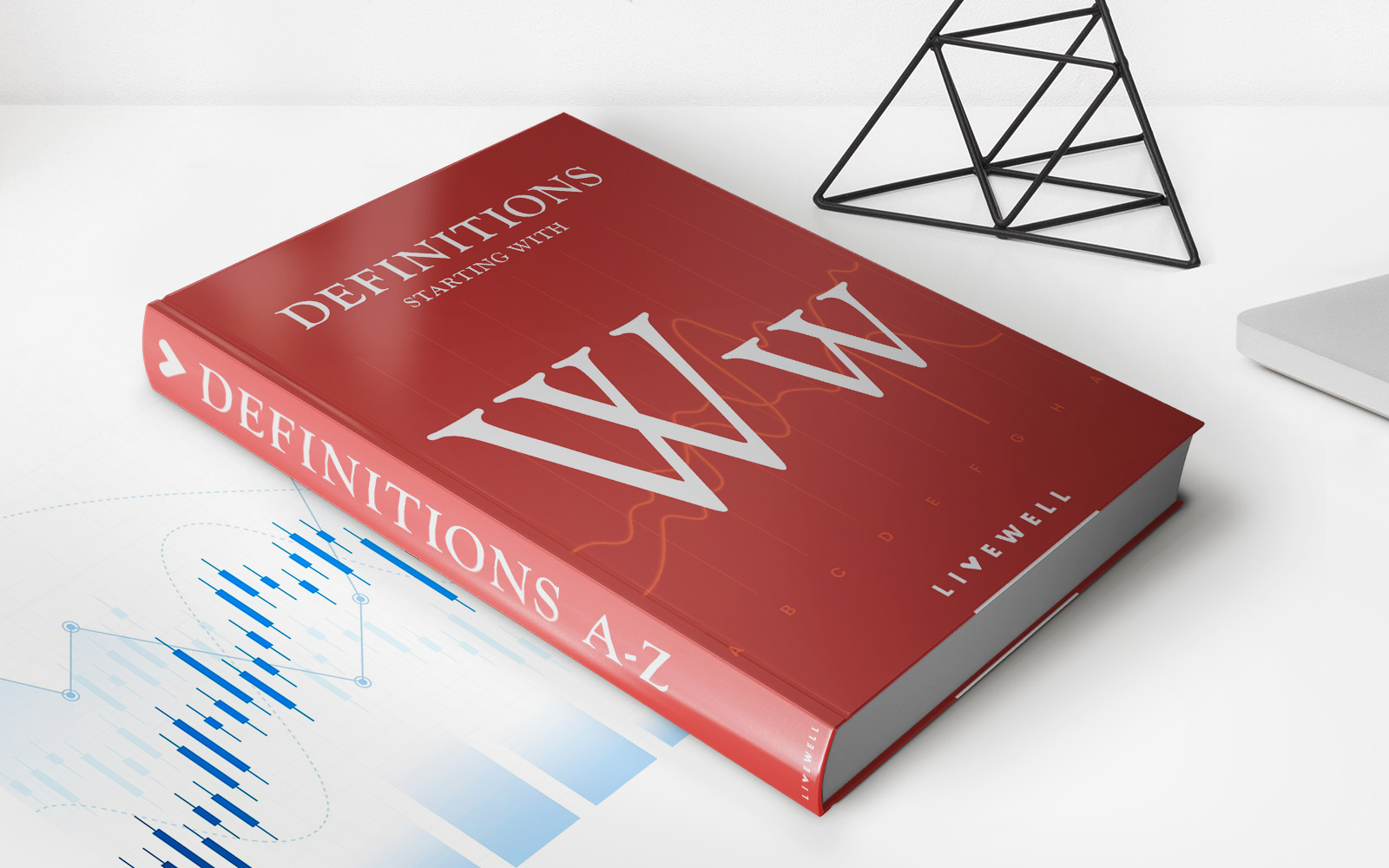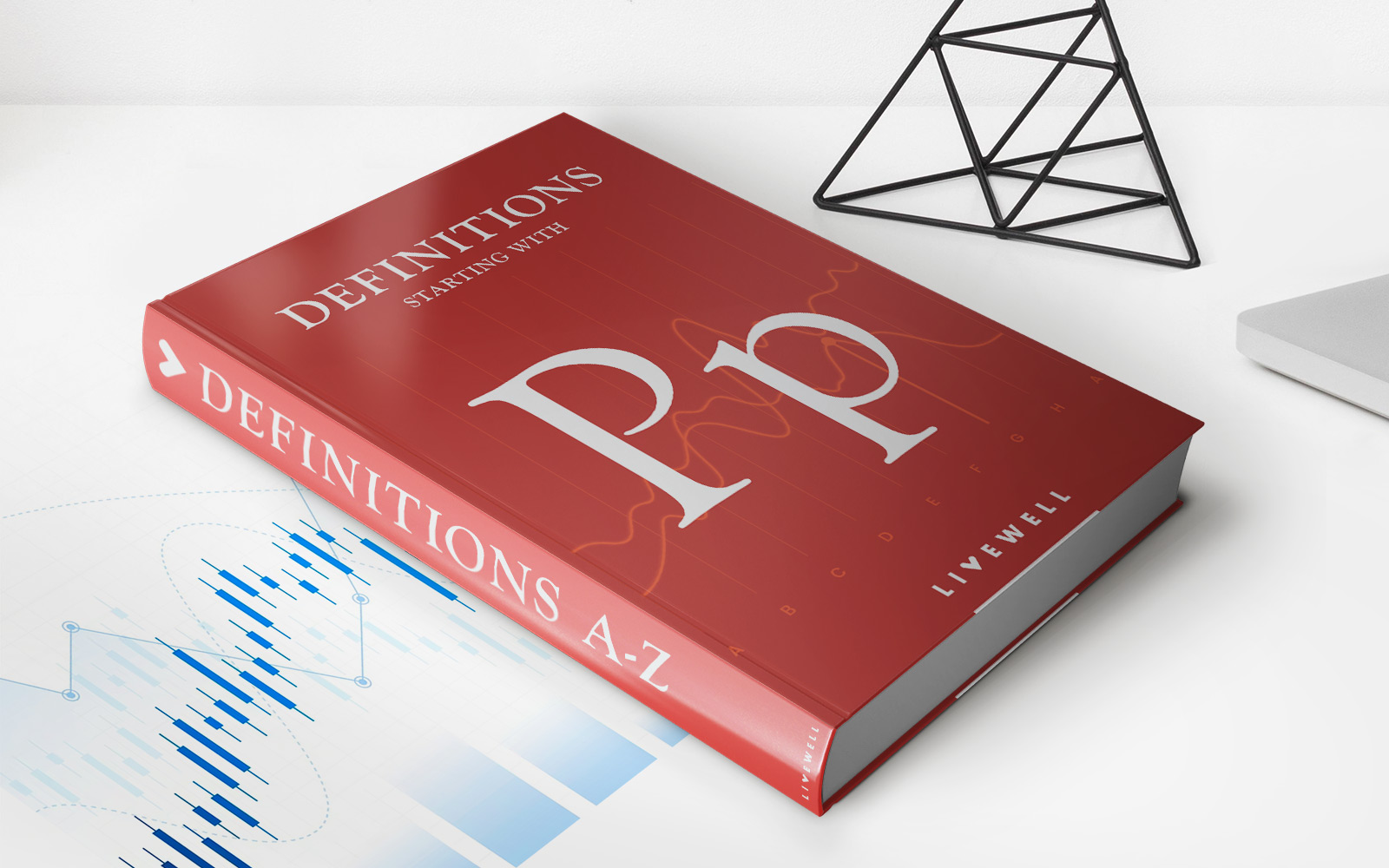

Finance
Who Rules The World Of Litigation Funding
Published: December 22, 2023
Looking for finance in the world of litigation funding? Find out who rules this industry and get the funding you need for your legal battles.
(Many of the links in this article redirect to a specific reviewed product. Your purchase of these products through affiliate links helps to generate commission for LiveWell, at no extra cost. Learn more)
Table of Contents
- Introduction
- Definition of Litigation Funding
- History of Litigation Funding
- Benefits of Litigation Funding
- Challenges in the World of Litigation Funding
- Key Players in the Litigation Funding Industry
- Role of Law Firms in Litigation Funding
- Ethical Considerations in Litigation Funding
- Regulation and Legal Framework of Litigation Funding
- Market Trends and Future Outlook of Litigation Funding
- Conclusion
Introduction
Welcome to the world of litigation funding, where financial resources merge with legal pursuits. Litigation funding, also known as legal financing or third-party litigation funding, has become a significant player in the legal industry, disrupting the traditional dynamics of litigation. This emerging field has gained popularity in recent years, allowing individuals and companies to pursue legal action without the financial burden that often comes with it.
Litigation funding refers to the process in which a third-party funding provider, commonly known as a litigation funder, finances the legal costs of a lawsuit in exchange for a share of the eventual settlement or judgment. This funding model provides plaintiffs with the financial means to pursue their legal claims while minimizing the risks associated with expensive litigation.
The concept of litigation funding can be traced back centuries, with historical examples of wealthy patrons providing financial support to litigants in high-stakes cases. However, it wasn’t until the late 20th century that litigation funding began to formalize into a structured industry. The development of litigation funding can be attributed to various factors, including the rising costs of legal proceedings, the increasing complexity of litigation, and the desire for equal access to justice.
One of the key benefits of litigation funding is the ability to level the playing field for individuals and small to medium-sized businesses who may not have the financial resources to pursue legal claims against powerful opponents. By alleviating the financial burden, litigation funding allows these underdog plaintiffs to obtain legal representation and pursue their cases without fear of bankruptcy or settlement pressure.
Moreover, litigation funding can bring accountability to corporations, insurance companies, and other deep-pocket defendants. When plaintiffs have the means to fully litigate their claims, defendants are more likely to take their legal responsibilities seriously, leading to fairer settlements and judgments.
However, litigation funding is not without its challenges. Some critics argue that it encourages frivolous litigation and may give rise to conflicts of interest. It is essential to strike a balance between providing necessary resources for legitimate claims while guarding against potential abuses of the system. The ethical considerations surrounding litigation funding have prompted ongoing discussions and debates within the legal community.
Despite these challenges, the litigation funding industry continues to expand and evolve. In recent years, the market has witnessed the emergence of new players, including specialized companies and hedge funds, providing funding options for a wide range of legal cases. Additionally, law firms are increasingly exploring partnerships with litigation funders, tapping into this alternative source of financing to offer their clients more flexible fee arrangements and enhance their own profitability.
As litigation funding becomes more prevalent, it is crucial to understand the regulatory framework that governs this industry. Different jurisdictions have varying degrees of oversight and regulations surrounding litigation funding, aiming to strike a balance between promoting access to justice and safeguarding against potential abuses. Monitoring the legal landscape is essential for both litigators and litigation funders to navigate this evolving industry effectively.
In this article, we will explore the world of litigation funding in more detail, discussing its history, benefits, challenges, key players, ethical considerations, and regulatory framework. Join us on this journey to uncover how litigation funding is reshaping the legal landscape and providing innovative solutions for those seeking justice.
Definition of Litigation Funding
Litigation funding, also known as legal financing or third-party litigation funding, is a practice in which a third-party entity provides financial resources to support the legal costs of a lawsuit. The litigation funder, which can be an individual, company, or specialized funding firm, agrees to cover the expenses associated with the litigation in exchange for a portion of the settlement or judgment if the case is successful.
This funding model is primarily used by plaintiffs who lack the financial means to pursue legal action due to the high costs involved. By obtaining litigation funding, these individuals or entities can secure the necessary resources to hire legal representation, cover court fees, and navigate the complexities of litigation.
It is important to note that litigation funding is typically non-recourse financing, meaning that if the plaintiff loses the case, they are not required to repay the litigation funder the funds advanced for the lawsuit. The burden of financial risk is therefore transferred from the plaintiff to the litigation funder, offering the plaintiff a level of financial protection.
Litigation funding can be used in a wide range of legal disputes, including personal injury claims, commercial litigation, intellectual property disputes, class action lawsuits, and more. The availability of litigation funding has expanded the access to justice for individuals and businesses who may otherwise be unable to pursue their legal rights due to lack of funds.
While litigation funding is most commonly associated with plaintiffs, it is also used by defendants as a means of managing legal costs and mitigating risk. In some cases, defendants may seek litigation funding to finance their legal defense and offset potential damages or settlement payments.
It is important to differentiate litigation funding from other forms of legal finance, such as legal aid or contingency fee arrangements. Legal aid is a government-funded service that provides legal assistance to individuals who cannot afford legal representation. Contingency fee arrangements, on the other hand, are agreements between a client and an attorney in which legal fees are contingent upon the successful outcome of the case, with the attorney taking a percentage of the settlement or judgment as payment.
Overall, litigation funding offers a valuable solution for individuals and businesses facing costly legal battles. By providing financial resources, it helps level the playing field and allows access to justice for those who may otherwise be unable to navigate the complexities of the legal system. As the litigation funding industry continues to grow and evolve, it is reshaping the landscape of litigation and providing new opportunities for individuals and businesses seeking legal recourse.
History of Litigation Funding
The concept of litigation funding has roots that can be traced back centuries, although the formalization of the industry is a more recent development. Historically, individuals with deep pockets would provide financial support to litigants in high-stakes cases, often motivated by personal or political interests. However, it was not until the late 20th century that litigation funding began to take shape as a structured industry.
During the 1990s, litigation funding gained traction in Australia and the United Kingdom. In Australia, a landmark case called Campbells Cash & Carry Pty Ltd v Fostif Pty Ltd brought attention to the practice of third-party litigation funding. The case involved a company seeking funding to pursue a legal claim against its competitor. The court ruled in favor of litigation funding, stating that it was not contrary to public policy and allowed access to justice for litigants who may not have the financial means to pursue their claims.
In the United Kingdom, the Access to Justice Act of 1999 played a crucial role in shaping the litigation funding landscape. The act allowed for conditional fee agreements, also known as “no win, no fee” agreements, wherein lawyers could charge a success fee if the case was won. This incentivized law firms to take on cases on a speculative basis, as they would only receive payment if successful. As a result, the use of litigation funding increased.
Over the years, litigation funding expanded beyond Australia and the UK, gaining popularity in other jurisdictions, including the United States. In the US, litigation funding took off in the early 2000s, driven by factors such as rising litigation costs and the increasing complexity of legal disputes. The industry attracted the interest of institutional investors and specialized funding firms, which provided the necessary capital to fund lawsuits in exchange for a share of the proceeds.
Since then, litigation funding has continued to grow and evolve. It has become an integral part of the legal ecosystem, providing access to justice for individuals and businesses alike. The industry has expanded to cover a wide range of legal claims, including personal injury cases, mass tort litigation, intellectual property disputes, and even international arbitrations.
Furthermore, the growth of the litigation funding industry has spurred increased scrutiny and regulatory developments. Jurisdictions around the world have implemented regulations to ensure transparency, ethical practices, and the fair distribution of funds in litigation funding arrangements.
Looking ahead, the future of litigation funding appears promising. As litigation costs continue to rise and legal proceedings become increasingly complex, the demand for funding solutions is likely to increase. The evolving landscape of litigation, including the use of technology and alternative dispute resolution mechanisms, will present new opportunities and challenges for the industry. By staying abreast of these developments, litigation funders and legal practitioners can adapt and provide innovative solutions to meet the changing needs of litigants.
Benefits of Litigation Funding
Litigation funding offers numerous benefits for plaintiffs, defendants, and the legal system as a whole. Let’s explore some of the key advantages of using litigation funding:
- Access to Justice: One of the primary benefits of litigation funding is that it provides access to justice for individuals and businesses who may not have the financial means to pursue legal action. By securing funding, plaintiffs can hire experienced lawyers, cover court fees, and gather evidence, ensuring that their claims are properly represented in court.
- Leveling the Playing Field: Litigation funding helps level the playing field between plaintiffs and well-funded defendants. It allows individuals and smaller companies to take on powerful opponents and pursue their legal rights without fear of being outspent.
- Risk Mitigation: Litigation can be a costly endeavor, and the financial risks associated with losing a case can deter individuals from pursuing legal action. Litigation funding mitigates this risk by providing non-recourse financing. If the case is unsuccessful, the litigation funder absorbs the financial loss, allowing the plaintiff to move forward without the burden of outstanding legal expenses.
- Expense Coverage: Legal proceedings involve various costs, including attorney fees, court fees, expert witness fees, and other litigation expenses. Litigation funding covers these expenses, ensuring that plaintiffs have the necessary resources to pursue their cases without incurring additional financial strain.
- Flexibility in Legal Strategy: With litigation funding, plaintiffs have the financial freedom to pursue their cases vigorously. They can afford to invest in extensive research, gather strong evidence, and hire expert witnesses to build a compelling legal strategy. This flexibility enhances the chances of a favorable outcome.
- Improved Settlement Negotiations: Litigation funding can also enhance settlement negotiations. With the backing of a litigation funder, plaintiffs can resist settlement pressure and pursue fair compensation, as they are not forced to settle prematurely due to financial constraints. Defendants may also benefit from litigation funding by having access to additional financial resources to defend themselves effectively.
- Legal Cost Management: Defendants can use litigation funding to manage their legal costs more effectively. By obtaining funding, defendants can budget for legal expenses, allocate resources appropriately, and avoid potential liquidity issues associated with mounting legal bills.
- Enhanced Law Firm Profitability: Litigation funding offers benefits for law firms as well. By partnering with litigation funders, law firms can offer alternative fee arrangements, such as hybrid or contingency fee arrangements, to their clients. This flexibility can attract more clients and enhance the firm’s overall profitability.
Overall, litigation funding provides a range of benefits, offering access to justice, mitigating financial risks, leveling the playing field, and improving the effectiveness of legal representation. It has revolutionized the legal industry by empowering individuals and businesses to pursue their legal rights with confidence, ensuring a fairer and more equitable legal system.
Challenges in the World of Litigation Funding
The world of litigation funding is not without its challenges. While litigation funding provides numerous benefits, it also presents a set of unique challenges that need to be carefully navigated. Let’s explore some of the key challenges in the world of litigation funding:
- Ethical Concerns: One of the main challenges associated with litigation funding is the ethical considerations surrounding the practice. Critics argue that litigation funding may encourage frivolous lawsuits and lead to a growth in meritless claims. It is important for litigation funders and legal practitioners to exercise due diligence, ensuring that they support valid and meritorious cases.
- Conflict of Interest: Litigation funding can potentially create conflicts of interest. The involvement of a third-party funder in the litigation process may influence the strategic decisions made by plaintiffs and their legal representatives. It is crucial for all parties involved to be transparent about any potential conflicts of interest and ensure that the best interests of the claimant are prioritized at all times.
- Regulatory Uncertainty: The regulatory framework surrounding litigation funding varies across jurisdictions. Some jurisdictions have implemented specific regulations to govern the industry, while others have yet to establish clear guidelines. This inconsistency can create uncertainty for litigation funders and legal practitioners, requiring them to stay updated and compliant with different sets of rules and regulations.
- Confidentiality: In litigation funding arrangements, sensitive information about the case is often shared with the litigation funder. Maintaining confidentiality and protecting privileged attorney-client communications can be challenging, as the funder becomes privy to potentially confidential information. It is crucial for all parties involved to establish robust confidentiality agreements and safeguards to protect the privacy of the litigation process.
- Reputation Risk: Litigation funders may face reputation risks associated with the cases they support. The public perception of litigation funding varies, and funders may face criticism or backlash for funding certain types of cases. It is essential for litigation funders to carefully select the cases they fund, ensuring they align with their values and maintain a positive reputation in the industry.
- Regulation of Fees and Terms: Some critics argue that litigation funding arrangements can lead to excessive fees and high interest rates, potentially exploiting plaintiffs who are in need of financial support. Striking a fair balance in fee structures and ensuring transparent and reasonable terms is crucial to safeguard the interests of all parties involved.
- Conflicting Jurisdictional Laws: Litigation funding can sometimes involve cross-border disputes, complicating matters when it comes to jurisdictional laws and regulations. Different jurisdictions may have conflicting rules on the enforceability and interpretation of litigation funding agreements. Parties involved in cross-border litigation funding arrangements must carefully navigate these complexities to ensure compliance with relevant laws.
Despite these challenges, the litigation funding industry continues to grow and adapt. As the industry evolves, addressing these challenges becomes crucial to maintain the integrity of the practice and ensure its long-term sustainability. Close attention to ethical considerations, transparency, regulatory compliance, and balanced fee arrangements is essential in mitigating these challenges and fostering a trustworthy and effective litigation funding ecosystem.
Key Players in the Litigation Funding Industry
The litigation funding industry has witnessed significant growth in recent years, leading to the emergence of various key players. These players include specialized litigation funding companies, institutional investors, law firms, and even individual investors. Let’s explore some of the key players in the litigation funding industry:
- Litigation Funding Companies: These specialized firms are dedicated to providing funding for legal disputes. They have expertise in assessing the merits and risks of potential cases and offer financial resources to plaintiffs in exchange for a share of the eventual settlement or judgment. Examples of litigation funding companies include Burford Capital, IMF Bentham, and Omni Bridgeway.
- Institutional Investors: In addition to dedicated litigation funding companies, institutional investors such as pension funds, hedge funds, and private equity firms have also entered the litigation funding space. These investors provide the necessary capital to fund lawsuits, aiming to generate a return on their investment based on the outcome of the case.
- Law Firms: Law firms are increasingly exploring partnerships with litigation funders to offer their clients alternative fee arrangements. By partnering with litigation funders, law firms can provide their clients with access to financial resources for their legal disputes. This collaboration can enhance law firm profitability and attract more clients seeking flexible financial arrangements for litigation.
- Individual Investors: Beyond institutional investors, there are individual investors who may choose to invest in specific legal cases. These investors, often high-net-worth individuals, provide the necessary funding to plaintiffs in exchange for a portion of the potential settlement or judgment. These individual investors may have personal or strategic interests in supporting particular cases.
- Insurance Companies: Some insurance companies have also started offering litigation funding services as part of their product offerings. They provide funding to policyholders to pursue legal claims covered under their insurance policies. This type of litigation funding is often referred to as “after-the-event” insurance, as it is offered after an insured event occurs and the policyholder seeks legal recourse.
- Legal Networks and Associations: Legal networks and associations, such as bar associations and professional organizations, play a role in the litigation funding industry. They contribute to the development of ethical guidelines, share best practices, and facilitate discussions and education on litigation funding for legal practitioners and funders.
As the litigation funding industry continues to evolve, these key players shape the landscape of legal finance. The presence of specialized litigation funding companies, institutional investors, law firms, individual investors, insurance companies, and legal networks demonstrates the breadth and diversity of participants in this growing sector.
It is worth noting that the specific players and their roles may vary across jurisdictions, as legal and regulatory environments differ. Monitoring the key players in the litigation funding industry is essential for staying informed about the latest developments, trends, and opportunities in the field of legal finance.
Role of Law Firms in Litigation Funding
Law firms play a crucial role in the world of litigation funding, as they are at the forefront of representing clients in legal disputes. The relationship between law firms and litigation funders has evolved in recent years, with law firms increasingly exploring partnerships and collaborations with funders. Let’s explore the role of law firms in the context of litigation funding:
1. Identifying and Assessing Potential Cases: Law firms are responsible for identifying potential cases that are suitable for litigation funding. They assess the merits, risks, and financial viability of a case to determine if it aligns with the requirements of litigation funding providers.
2. Advisory Services: Law firms provide advisory services to clients considering litigation funding. They explain the benefits and risks associated with using litigation funding, helping clients make informed decisions about pursuing legal action with funding support.
3. Due Diligence: Law firms conduct due diligence on litigation funders to ensure they have the necessary expertise, experience, and financial stability. This process helps mitigate the risk of partnering with unreliable or unethical funders.
4. Negotiating Funding Agreements: Law firms negotiate and draft the terms of the litigation funding agreements on behalf of their clients. They work closely with the litigation funder to ensure that the funding arrangement aligns with the needs and objectives of the client.
5. Strategic Planning: Law firms collaborate with litigation funders to develop a strategic plan for the case. They consider the financial resources available through litigation funding and tailor a litigation strategy that maximizes the chance of a successful outcome for the client.
6. Optimal Resource Allocation: With the financial support provided by litigation funders, law firms can allocate resources more efficiently. They can dedicate additional time, expertise, and resources to build a strong case for their clients, enhancing the overall quality of legal representation.
7. Alternative Fee Arrangements: Law firms may offer alternative fee arrangements, such as hybrid or contingency fee arrangements, in collaboration with litigation funders. These arrangements provide clients with more flexibility and can help attract clients who may not have the means to pursue litigation otherwise.
8. Risk Mitigation: Litigation funding reduces the financial risk for both law firms and their clients. By sharing the financial burden with litigation funders, law firms can take on cases with higher risk profiles, expand their client base, and generate revenue from cases they may have otherwise declined due to financial feasibility concerns.
9. Enhanced Profitability: Collaborating with litigation funders can enhance the profitability of law firms. By accessing litigation funding, law firms can secure a steady stream of cases, increase their caseload capacity, and potentially generate additional revenue from successful outcomes.
10. Compliance with Ethical and Regulatory Standards: Law firms uphold ethical and regulatory standards in the context of litigation funding. They ensure transparency, client confidentiality, and address potential conflicts of interest to maintain professional integrity throughout the litigation process.
The role of law firms in litigation funding is crucial in facilitating access to justice, managing legal costs, and providing innovative funding solutions for clients. By leveraging their expertise and collaboration with litigation funders, law firms can enhance their capabilities and deliver effective legal representation to a broader range of clients.
Ethical Considerations in Litigation Funding
Ethical considerations play a vital role in the practice of litigation funding. As litigation funding continues to grow and evolve as an industry, it is essential to address the ethical implications and ensure that the interests of all parties involved are protected. Let’s explore some of the key ethical considerations in the world of litigation funding:
Transparency and Disclosure: Transparency is a fundamental ethical principle in litigation funding. Litigation funders and law firms must provide clear information to clients about the funding arrangements, including the terms, fees, and any potential conflicts of interest. Clients should have a complete understanding of how the funding process works and the implications it may have on their case.
Conflicts of Interest: Conflicts of interest can arise in litigation funding arrangements. It is crucial for all parties involved, including the litigation funder, law firm, and plaintiff, to address and manage potential conflicts of interest appropriately. This includes ensuring that the funder does not interfere with the lawyer’s independent judgment and that the plaintiff’s best interests are always prioritized.
Maintaining Client Confidentiality: Litigation funding can involve sharing sensitive information about the case with the funder. Preserving client confidentiality and protecting privileged attorney-client communications is paramount. Litigation funders and law firms should establish robust confidentiality agreements and safeguards to prevent unauthorized disclosure of confidential information.
Avoidance of Frivolous Claims: Ethical litigation funders and law firms have a responsibility to assess the merit and viability of potential cases. Funding should be provided for valid claims with reasonable prospects of success, rather than promoting frivolous or baseless lawsuits. This ensures that the litigation process is conducted in good faith and serves the interests of justice.
Fairness and Equity: Ethical considerations in litigation funding also revolve around fairness and equity. Litigation funders should provide funding on fair and reasonable terms that do not exploit the plaintiffs. Funding agreements should consider the financial needs and circumstances of the client, ensuring a balanced and equitable distribution of proceeds from a successful outcome.
Regulatory Compliance: Compliance with applicable laws and regulations is crucial to maintain ethical standards in litigation funding. Jurisdictions may have varying requirements and guidelines governing the industry, including the permissible fee structures and disclosure obligations. Litigation funders and law firms must understand and adhere to the regulatory framework in their respective jurisdictions to ensure ethical conduct.
Avoidance of Interference: Litigation funders must avoid any interference in the attorney-client relationship and the litigation process. They should not unduly influence strategic decisions made by the plaintiff or their legal representatives and should respect the independence of the lawyer’s professional judgment.
Accountability and Professionalism: Upholding ethical standards in litigation funding requires accountability and professionalism from all parties involved. Litigation funders, law firms, and plaintiffs should act with integrity, honesty, and fairness throughout the litigation process, ensuring that the principles of justice are upheld.
Addressing these ethical considerations is essential to maintain public trust in the litigation funding industry and to protect the rights and interests of all stakeholders. By adhering to high ethical standards, litigation funders and law firms can ensure that litigation funding continues to provide access to justice while upholding the integrity of the legal system.
Regulation and Legal Framework of Litigation Funding
The regulation and legal framework surrounding litigation funding vary across jurisdictions. As the industry continues to grow, regulatory bodies and lawmakers are grappling with the need to strike a balance between promoting access to justice and protecting against potential abuses. Let’s explore the regulation and legal considerations in the world of litigation funding:
Regulatory Oversight: Some jurisdictions have implemented specific regulations to govern the litigation funding industry. These regulations may cover areas such as licensing requirements for litigation funders, disclosure obligations, and limits on fees and interest rates. Regulatory oversight aims to protect the interests of litigants and maintain the integrity of the legal system.
Disclosure Requirements: Many jurisdictions require litigation funders to provide full and transparent disclosure of the terms of the funding arrangement to the litigants. This includes the funding fees, interest rates, and potential conflicts of interest. Disclosure requirements aim to ensure that litigants have a clear understanding of the financial implications of accepting litigation funding.
Champerty and Maintenance Laws: Some jurisdictions have laws governing champerty and maintenance, which were historically used to discourage third-party involvement in litigation. Champerty refers to an illegal agreement in which a person finances a lawsuit in exchange for a share of the proceeds. Maintenance refers to an illegal agreement to support and encourage litigation. These laws have been modified or repealed in some jurisdictions, enabling litigation funding to flourish, while in other jurisdictions, they still present legal barriers or restrictions.
Confidentiality and Privilege: Litigation funders and law firms must navigate confidentiality and privilege issues related to sharing case information. Preserving client confidentiality and protecting privileged attorney-client communications are paramount. Laws and regulations surrounding client confidentiality and privilege vary across jurisdictions, highlighting the need for careful consideration and adherence to the legal requirements of each specific jurisdiction.
Consumer Protection: Some jurisdictions have specific consumer protection laws that apply to litigation funding. These laws aim to prevent predatory practices, ensure fair and transparent funding agreements, and protect litigants from exploitative terms or excessive fees. Consumer protection laws may impose restrictions on interest rates, fee structures, and the enforceability of certain funding provisions.
Professional Codes of Conduct: Professional associations and legal bodies often have codes of conduct and ethics that apply to lawyers and legal practitioners involved in litigation funding. These codes of conduct guide professional behavior, promote transparency, and ensure ethical practices.
International Variations: It is important to note that regulations and legal frameworks surrounding litigation funding can differ significantly between jurisdictions. Some jurisdictions have embraced litigation funding and implemented supportive regulations, while others may have limited or no specific regulations in place. Cross-border litigation funding may also raise complex issues related to multiple legal systems and conflicting regulations.
Evolving Landscape: The regulation and legal framework for litigation funding continue to evolve. Lawmakers and regulatory bodies are closely monitoring industry developments to ensure regulatory frameworks keep pace with the changing dynamics of litigation funding. Ongoing discussions and consultations are taking place to address potential gaps in regulation and to strike a balance between promoting access to justice and safeguarding against potential abuses.
It is essential for litigation funders, law firms, and legal practitioners to stay abreast of the regulations and legal requirements in their respective jurisdictions. Complying with these regulations helps maintain the integrity of the industry and ensures that litigation funding remains a transparent and reliable option for those seeking financial support in pursuing their legal claims.
Market Trends and Future Outlook of Litigation Funding
The market for litigation funding has experienced significant growth in recent years, and the future outlook for the industry remains promising. Let’s explore some key market trends and future prospects for litigation funding:
Global Expansion: The market for litigation funding is expanding globally. Initially prevalent in jurisdictions like Australia, the United Kingdom, and the United States, litigation funding is gaining traction in other regions as well. Countries in Europe, Asia, and Latin America are witnessing the emergence of local litigation funding firms and the adoption of legal frameworks that support the practice.
Increasing Demand: The demand for litigation funding is on the rise due to several factors. Escalating legal costs, complex disputes, and the desire for equal access to justice have contributed to the growing demand for financial support in pursuing legal claims. Litigation funding provides a solution for plaintiffs, particularly individuals and smaller businesses, to level the playing field and navigate costly legal battles.
Diversification of Cases: Initially associated with commercial litigation, litigation funding is now being utilized across a broader range of cases. Personal injury claims, class actions, intellectual property disputes, and even international arbitrations are now being funded. This diversification of cases highlights the expanding scope and versatility of litigation funding in meeting the needs of a wide range of litigants and legal scenarios.
Rise of Institutional Investors and Specialized Funds: The participation of institutional investors, such as pension funds and private equity firms, in litigation funding is increasing. These investors are attracted by the potential returns and diversification opportunities offered by litigation finance. Additionally, specialized funds focused solely on litigation funding are emerging, providing additional access to capital for financing legal claims.
Collaboration between Law Firms and Funders: Collaboration and partnerships between law firms and litigation funders are on the rise. Law firms are recognizing the benefits of working with funders to provide alternative fee arrangements and expand their client base. This collaboration enhances the profitability of law firms while offering clients more flexibility in managing their legal costs.
Technological Advancements: Technology is playing a significant role in the evolution of litigation funding. Advanced data analytics, AI-driven case evaluation, and predictive modeling are helping litigation funders assess the potential viability and risks of cases more accurately. Technology also facilitates efficient case management and streamlines communication between litigants, funders, and legal teams.
Regulatory Developments: Regulation of the litigation funding industry continues to evolve. Some jurisdictions are implementing specific regulations to ensure transparency, fairness, and ethical standards in litigation funding practices. Regulatory developments aim to strike a balance between promoting access to justice and mitigating potential risks or abuses within the industry.
Increased Awareness and Acceptance: As litigation funding becomes more widely known and accepted, there is a growing awareness of its benefits and potential applications. Legal professionals, businesses, and individuals are recognizing that litigation funding is an innovative tool to support their legal endeavors while managing financial risks. This increased awareness is driving further growth and acceptance of litigation funding as a mainstream practice.
Looking ahead, the future of litigation funding appears promising. The industry is expected to continue expanding globally, encompassing a wider range of cases and jurisdictions. Regulatory frameworks will likely continue to mature, providing clearer guidelines and enhancing investor confidence. Technological advancements will further streamline processes and aid in the evaluation and management of cases.
Ultimately, litigation funding will continue to play a crucial role in promoting access to justice, leveling the playing field, and ensuring that deserving legal claims are pursued without financial constraints. As the legal landscape evolves, litigation funding will remain a valuable tool for individuals and businesses seeking financial support to navigate the complexities of the legal system and assert their rights.
Conclusion
The world of litigation funding has evolved into a significant force within the legal industry, offering financial resources for individuals and businesses to pursue legal claims. Litigation funding provides access to justice, levels the playing field, and mitigates the financial risks associated with costly legal battles. Through partnerships between law firms and litigation funders, plaintiffs are empowered to pursue their legal rights with the necessary resources and support.
While there are ethical considerations surrounding litigation funding, including transparency, conflicts of interest, and avoiding frivolous claims, the industry continues to adapt and address these challenges. Regulatory frameworks are evolving to ensure fairness, accountability, and ethical conduct, enabling litigation funding to provide a valuable solution for those seeking legal recourse.
The market trends and future outlook for litigation funding are promising. With global expansion, increasing demand, and the participation of institutional investors and specialized funds, the industry is poised for continued growth and diversification. Technological advancements and collaborations between law firms and funders further enhance the efficiency and potential of litigation funding.
As the industry evolves, it is crucial for all stakeholders to navigate the ethical considerations, uphold professional standards, and comply with regulatory requirements. By doing so, the integrity, transparency, and accessibility of litigation funding can be maintained, ensuring that it remains a reliable and effective tool for those seeking financial support in pursuing their legal claims.
Ultimately, litigation funding enhances access to justice and contributes to a more equitable legal system. It provides an opportunity for plaintiffs, particularly those without significant financial resources, to pursue their legal rights with confidence. As the industry continues to mature, it will undoubtedly play a pivotal role in reshaping the legal landscape and delivering innovative solutions for individuals and businesses seeking justice.














